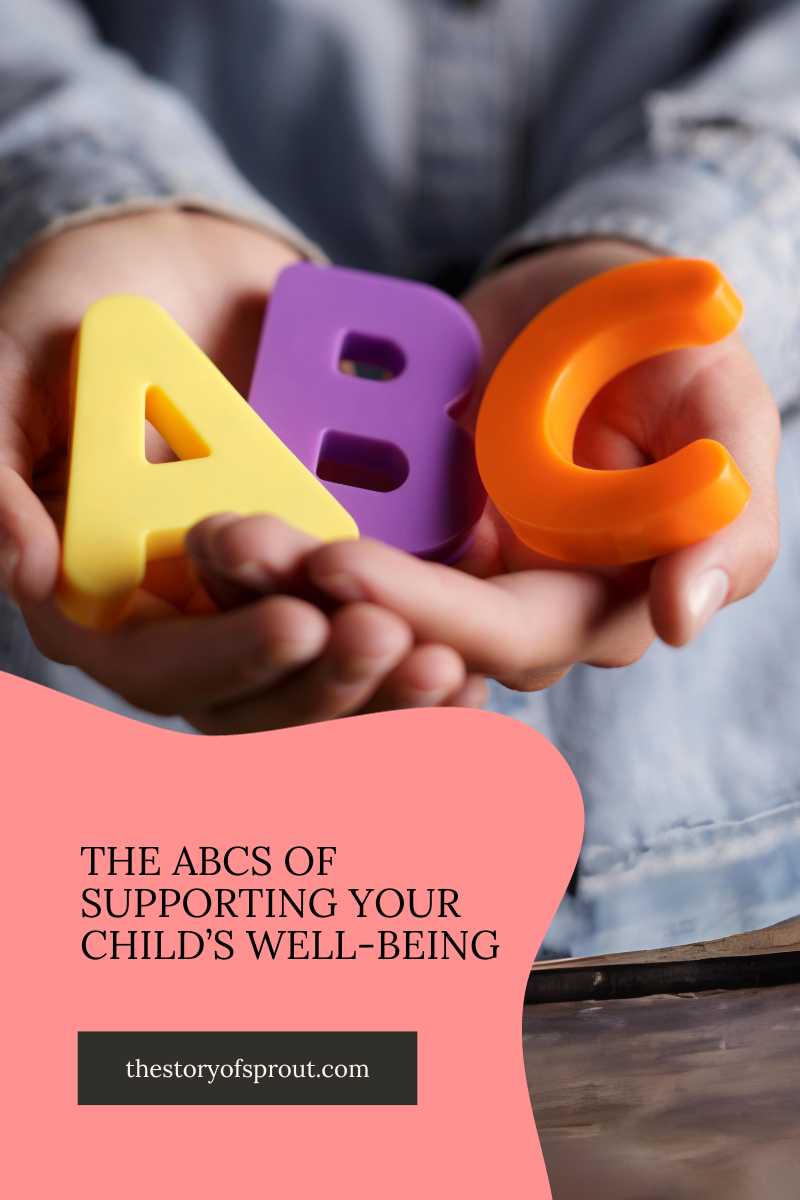
The ABCs of Supporting Your Child’s Well-Being
|
|
Time to read 4 min
|
|
Time to read 4 min
As parents, our relentless pursuit is to equip our children with the essential tools and guidance needed for a successful life journey. While academic achievements and extracurricular pursuits are undeniably crucial, the often-overlooked cornerstone of our children's development is their mental well-being. Just as reading shapes personalities and facilitates personal growth, fostering your child’s well-being from an early age lays the foundation for emotional resilience, empathy, and overall happiness. In this comprehensive exploration, we will delve into the expanded ABCs of supporting your child’s mental well-being and explore how these principles can be as transformative as reading.
Before we delve into the ABCs of supporting your child’s mental well-being, let’s take a moment to recognize the significance of mental health in children. The early years of a child's life are crucial for their mental development, shaping their emotional intelligence and laying the groundwork for future well-being. Just as physical health is a priority, attending to a child’s mental health is equally essential. Childhood experiences, both positive and challenging, can significantly impact mental well-being in the long run.
Now, let’s explore the ABCs that will guide you in fostering a strong and resilient foundation for your child’s mental health.
In promoting your child's mental well-being, the key is acknowledging and validating their emotions. This involves actively engaging in conversations to encourage your child to articulate their feelings in a nuanced manner, fostering emotional intelligence. Creating an environment where open expression is celebrated is vital. For instance, during family dinners, introduce a "Feelings Check-In" where each member shares a high and a low of their day, providing a safe space for communication. Encourage your child to delve into the details of their feelings, fostering self-awareness. Extend this acknowledgment to creative outlets like drawing or writing, promoting a holistic understanding of their emotions and laying the foundation for resilient emotional well-being.
Delving into the concept of building resilience, it's vital to incorporate activities that challenge your child's problem-solving skills. Encourage them to step slightly outside their comfort zone, engaging in activities that foster adaptability and perseverance. Organize family challenges or projects requiring teamwork, reinforcing the value of collective effort in overcoming challenges. Share succinct stories of resilience, both from your experiences and diverse literary figures, emphasizing the lessons learned from setbacks. Recount brief personal instances of resilience, highlighting how challenges contribute to personal development. Encourage your child to keep a concise resilience journal, documenting challenges, strategies employed, and positive outcomes. This condensed approach ensures an effective and impactful exploration of resilience.
To nurture healthy relationships, actively engage in your child's social interactions. Organize playdates and group activities, participating as a facilitator to encourage positive behavior. Initiate discussions about friendship dynamics, creating a comfortable space for them to share experiences and learn about qualities like kindness and empathy. Emphasize the importance of recognizing and appreciating kindness in others, drawing on concise examples from literature. Read books together that highlight these themes, encouraging reflection on character actions. Share brief personal stories that exemplify enduring friendships, reinforcing the importance of these qualities in real-life relationships. This condensed approach provides a focused strategy for fostering positive social connections.0
To deepen the teaching of coping strategies, tailor the approach to your child's preferences. Experiment with relaxation techniques like deep breathing or guided imagery, engaging in these practices together to strengthen your bond. Encourage creative self-expression through drawing, writing, or hobbies, participating actively to turn these moments into shared experiences. For example, try a collaborative family art project or initiate a shared journal for expressing thoughts and feelings. Pursuing a hobby together, whether it's gardening or cooking, offers enjoyable moments that divert attention from stressors and foster a sense of accomplishment. This condensed approach ensures a personalized and practical toolkit for emotional well-being.
Expand your child's grasp of mental health by introducing age-appropriate resources that delicately unfold its intricacies. Move beyond basic discussions about emotions and delve into mental well-being as a continuum. Share relatable stories or books featuring characters navigating mental health challenges, providing a framework for empathy. Foster an environment where seeking help is normalized and encouraged. Encourage age-appropriate conversations about mental health, providing a vocabulary for expression. Engage in activities promoting mental well-being together, reinforcing the importance of self-care. This condensed approach imparts valuable knowledge while maintaining a digestible format for your child's understanding.
Elevate the concept of a supportive environment by actively involving your child in creating family traditions and routines. Implement designated family time for shared activities, like game nights or outdoor adventures. Reinforce that your home is a safe space where their thoughts and feelings are valued. Encourage open communication and consider family meetings for collaborative decision-making. These intentional efforts strengthen family bonds, providing a stable foundation for your child's emotional well-being.
In conclusion, the expanded ABCs of supporting your child’s well-being offer a comprehensive roadmap to fostering emotional resilience and lifelong happiness. By acknowledging and actively engaging with their feelings, building resilience through challenges, cultivating healthy relationships, developing personalized coping strategies, educating about mental health, and fostering a consistently supportive environment, you provide your child with a holistic toolkit for emotional and mental thriving. This holistic approach not only sets the stage for personal growth but also establishes a resilient foundation for navigating the complexities of life. Just as reading transforms characters in literature, prioritizing your child's emotional health sets them on a transformative journey towards a brighter and more resilient future.
